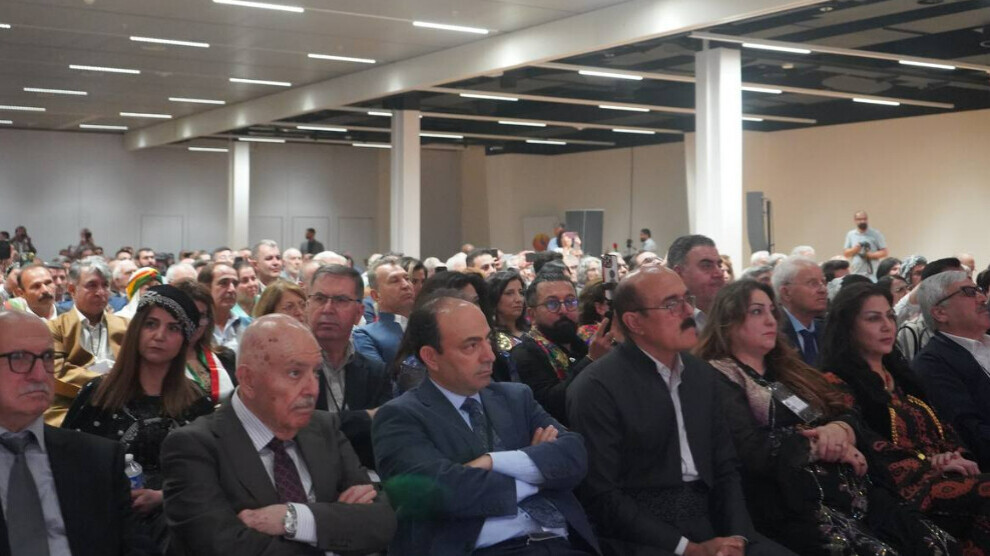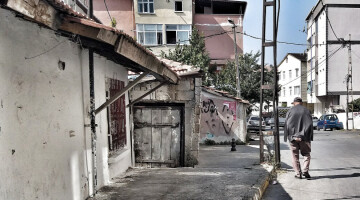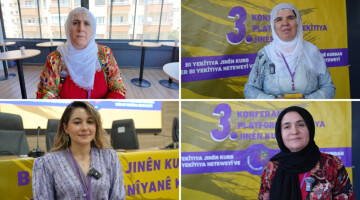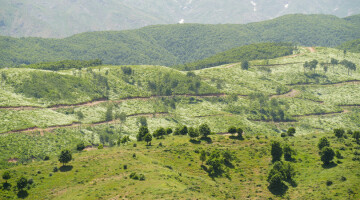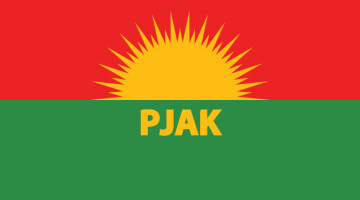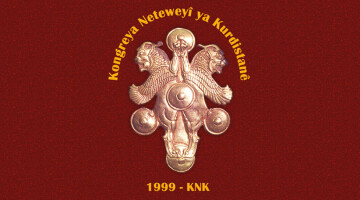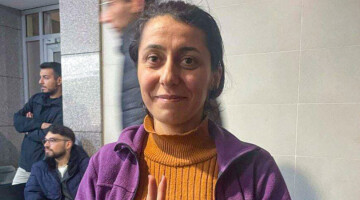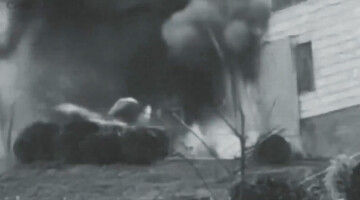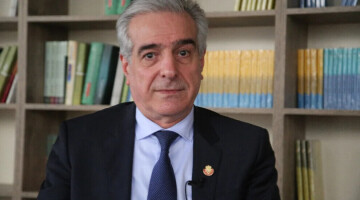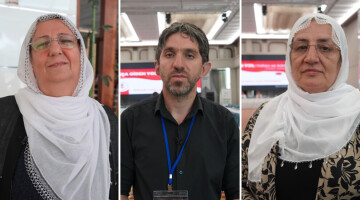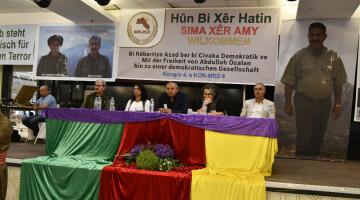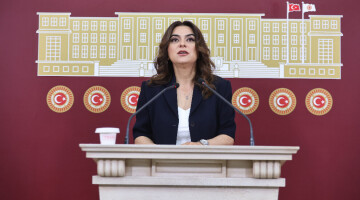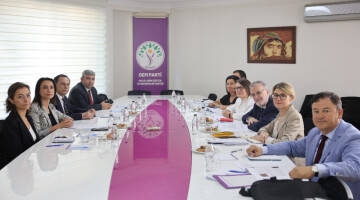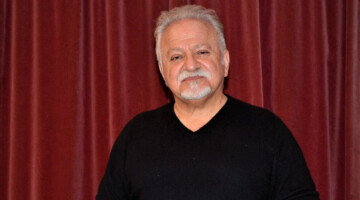In addition to a central march, the Kurdistan National Congress (KNK) is organizing a two-day conference in Lausanne to mark the 100th anniversary of the signing of the Treaty of Lausanne under the lead of England France, which divided Kurdistan into four parts and formed the basis for genocidal attacks against the Kurds in the last century.
The conference attended by 600 representatives of political parties, organizations and institutions from Kurdistan is taking place under the title “The stance of the people of Kurdistan on the 100th anniversary of the Treaty of Lausanne”.
Speaking here, Saleh Elemdar of the Syrian Democratic Union Party (PYD) stated that: “After the fall of the Ottoman Empire, the lands of Kurds were divided here 100 years ago. No state that the Kurds were forced to live with after their division treated them as friends or brothers and sisters. They did politics to annihilate and deny the Kurds with all their means. They divided Kurds, tribes and families into two. We ended up in Syria. After the French withdrawal from Syria, we had to live under the sovereignty of an Arab state which mobilized all its means to destroy us. They left us without an identity, denied our existence and displaced us from our lands through the Arab Belt. Still, the Kurdish people remain standing today, resisting and expressing their rejection of this treaty.”
‘Turkish attacks on Rojava are a continuation of the Treaty of Lausanne’
Remarking that the Turkish state’s attacks on Rojava developed as a continuation of the Treaty of Lausanne, Elemdar continued: “Not content with its genocidal campaign against our people in Bakur (East Turkey), the Turkish state continues similar genocidal attacks against our people in Rojava (North Syria) and Bashur (North Iraq) as well. The Turkish state has obtained international approval to destroy the Kurds and maintains the Treaty of Lausanne. Iran, Syria, Iraq and Turkey are taking common action to annihilate the Kurds.”
‘We must determine the basis of unity’
A representative of Partiya Rizgariya Kurdistan (Kurdistan Freedom Party) said: “The consequences of the Treaty of Lausanne are discussed here today. Yet, what must we, the Kurds, do? We need to discuss and conclude this. What sort of work should we conduct? This is what this conference is organized for. This is what we are here today for. It is important that all our political structures act together. We must act around a common symbol. We must determine the basis of unity.”
Nure Alkış from the Coordination of Yazidi Community spoke about the pains suffered by the Kurds and other communities in Kurdistan for the past 100 years, saying: “Our people have suffered a lot as a result of the Treaty of Lausanne. As the Yazidi people, we have been through great pain because of our faith. The Yazidis are a part of Kurdish society and they have suffered genocides 74 times, the last one being in the 21st century when thousands of women and children from our people were massacred by ISIS.”
‘Kurdish unity can eliminate the consequences of the treaty’
HDP former MP İmam Taşçıer pointed out that Kurdish unity could eliminate the consequences of the Treaty of Lausanne, which, he said, removed the status agreement made between the Turkish state and the Kurds before.
Taşçıer continued: “The first assembly of Turkey was amended after this treaty. Some Kurdish deputies were murdered afterwards. The Kurdish language and culture were denied. Kurdish names of cities, towns and villages were Turkified. This conference should also conduce toward a national congress that Kurds should organize urgently. The political conjuncture and the reality in the Middle East require it. We need to build our unity and it should involve all parties and organizations. Kurdistan was divided with the approval of sovereign states and a consensus was reached in Lausanne for the division of the Kurds. In order to eliminate the emerging consequences, we need to get united and do whatever it takes to achieve it. With the Treaty of Lausanne, Kurdistan was handed over to the Persians, Turks and Arabs. A policy of denial, annihilation and destruction began afterwards.”
‘We should take lessons from our history’
Iraqi parliamentarian Dr Şoreş Hecî stated that the Kurds should produce politics to decide on their future on the 100th anniversary of the Treaty of Lausanne. “We should do whatever is necessary to achieve unity. We should think about our future and present unity against this treaty by taking strength from the struggle of our people. We should unite around a common symbol and take lessons from our history. We should wage a struggle with our own culture. We should lay the foundations of our unity and frustrate the treaty of a hundred years ago. Conditions for this are available. It is enough to believe and act together.”
‘Crimes against the Kurds are ignored’
Kurdish teacher Gulnara Azadî from Kazakhstan highlighted the fact that the massacres and crimes against humanity that have been perpetrated in Kurdistan for a hundred years have been ignored by international judicial authorities. Defining the Treaty of Lausanne as an approval for these crimes and massacres, Gulnara Azadî noted that the Kurdish people have paid great prices against the division of Kurdistan and maintained their existence with their own language and culture.
“The Kurdish people can liberalize their language and culture in all parts of their country. I salute Leader Abdullah Öcalan who provided the conditions for us to speak here today. Bijî Serok Apo [Long Live Leader Öcalan].”
Demir Çelik, president of the Democratic Alevi Federation (FEDA), pointed to the importance of work for Kurdish national status. He stated that an independent commission should report the Turkish state’s crimes against the Kurdish people to all international institutions, adding that it was of great importance to coordinate diplomatic activities with international authorities such as the Council of Europe, the United Nations and the European Union.
Çelik also stressed the importance of waging a struggle at international level against the bans imposed on the language and culture of the Kurdish people.

